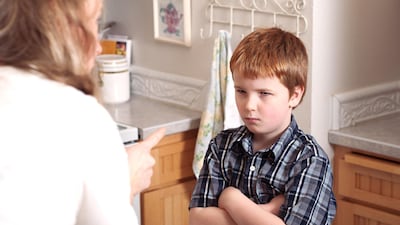Children who have adverse experiences such as being smacked at the age of 3 are more likely to suffer from poor mental health and have behavioural problems through to age 14, say researchers from University College London (UCL).
Previous work into the long-term effects of "adverse childhood experiences" on children between 3 and 14 years of age led to last year's smacking ban in Scotland.
This new study will add to calls for a similar ban to be introduced in England.
The UCL research team analysed responses from more than 8,000 members of the Millennium Cohort Study, a survey following the lives of 19,000 children born in the UK in 2000-2001.
Data was provided at six points throughout the participants’ childhoods: 9 months, and 3, 5, 7, 11 and 14 years of age.
Parents were asked about how often they smacked their children and other disciplinary measures they used.
They were also asked questions about parental conflict, alcohol misuse and psychiatric disorders.
This data was then matched with information, also obtained from the study, about the behaviour and well-being of their children.
The researchers found that two thirds of the children had experienced one adverse experience or more by the age of three.
Nearly one in five had two such experiences and one in six had three or more.
The associations between adverse experiences and poor mental health followed a "dose-response" pattern, with better outcomes for those who had none and the poorest effects for those with three or more.
The most common were parental depression, harsh parenting, smacking, use of force between parents, and parental alcohol misuse.
Boys were slightly more likely than girls to be treated harshly by parents and smacked, and also more likely to exhibit challenging behaviour.
But there were no significant gender differences with regards to mental health effects.
"It comes as no surprise that those children who have no or few adverse experiences as young children fare best of all, and that those who have more negative experiences are more likely to behave antisocially and have poor mental health such as anxiety and depressive symptoms," study lead Dr Leonardo Bevilacqua said.
“Our research, however, shows just how long those problems can persist at what is such an important and formative part of a young person’s life.”
The researchers did acknowledge the limits of using such experiences as the sole measurement of a child's future well-being.
They suggested further research would be improved by having more than one source of data, with contributions from teachers as well as parents.
But these constraints did not deter them from saying the findings added credence to calls to abolish physical punishment in all settings, including the family.
They said there was good evidence that legal bans were very effective in reducing the prevalence of physical punishment.
“The current pandemic has placed additional pressures on couples and families, and there are fears over increases in violence, particularly towards women and children," UCL researcher Dr Rebecca Lacey said.
"Never has there been a more important time, then, to ensure that those women and children are protected in law.”

